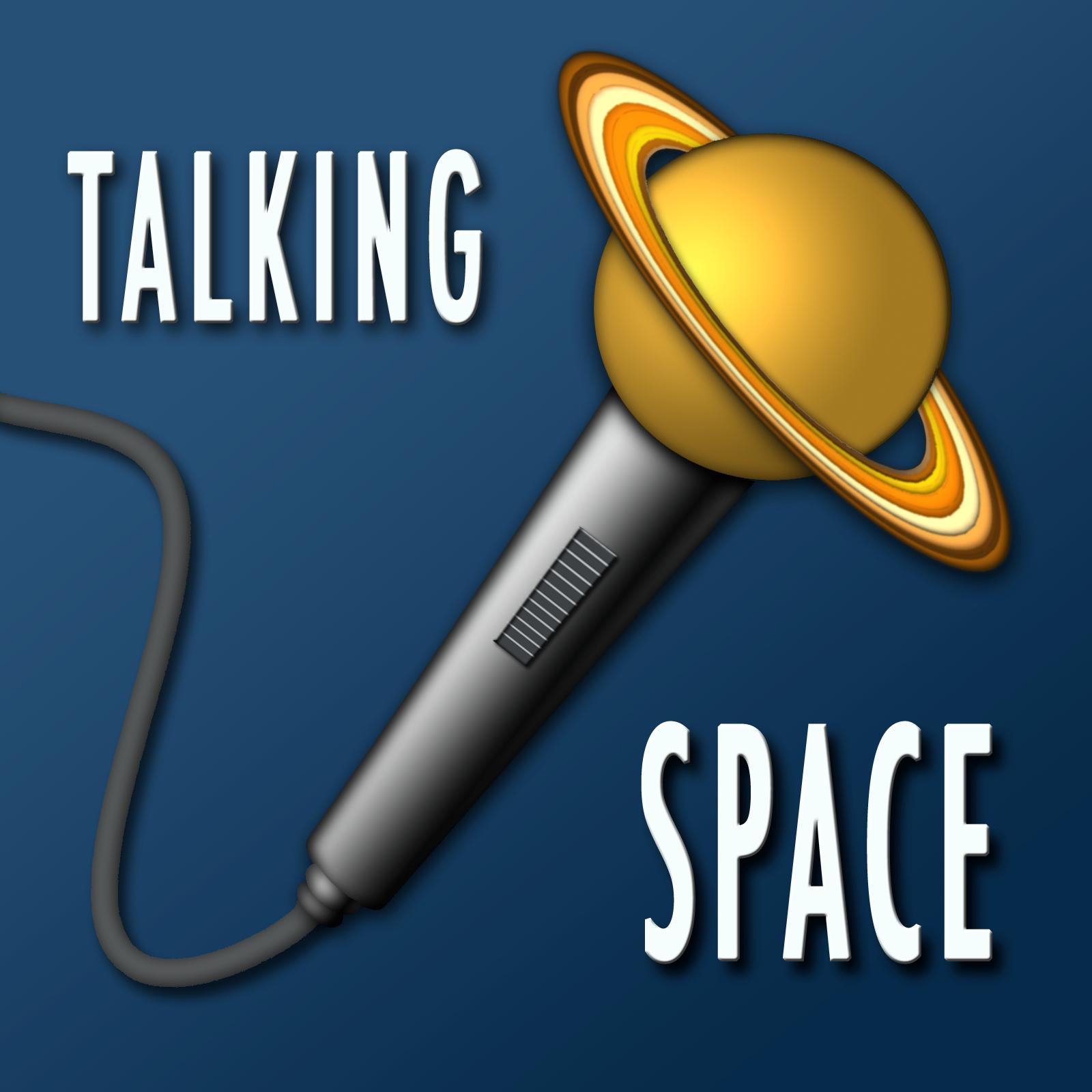Episodes

Friday Sep 21, 2018
Episode 1008: Up-Close with the Sun: Part 2
Friday Sep 21, 2018
Friday Sep 21, 2018
It's not just about getting to the sun, it's about the people behind the mission making it all happen. That's what this episode of Talking Space is all about.
We speak with four integral members of the Parker Solar Probe team. The mission launched successfully in early August. To hear more about the mission along with the spectacular Delta IV Heavy launch audio, be sure to check out Part 1 in Episode 1007.
In this episode, we begin speaking with Dr. Adam Szabo, the mission scientist for Parker Solar Probe. From him we learn more about the mission objectives, how the gravity assist will be different from those in the past, and how PSP fits in with the host of solar observing missions already in orbit.
Next, we speak with David McComas of Princeton University who is in charge of the ISʘIS experiment. We discuss more about the role of the instrument, along with his excitement, plus a person "struggle" so-to-speak that's he's used to his advantage and hopes to share with others.
Then, we hear from two of the mission's leads immediately following the successful liftoff. That includes project scientist and soon to be head of Heliophysics at NASA Nikki Fox and Dr. Thomas Zurbuchen about the status of the mission and what's next for the spacecraft as it nears its first Venus encounter to help slow it down.
Stay tuned for Part 3, following our normal news episode, featuring a Q&A which you can only hear in high quality in its entirety here with Dr. Eugene Parker. The session was held for a very limited audience before launch and has never been aired in its entirety, so stay tuned!
Show recorded 8-19-2018
Host: Sawyer Rosenstein
Panelist: Gene Mikulka with special guest interviews recorded on location at the Kennedy Space Center.

Sunday Aug 26, 2018
Episode 1007: Up-Close with the Sun: Part 1
Sunday Aug 26, 2018
Sunday Aug 26, 2018
On part one of this extremely special three-part Talking Space, hear the sound of a Delta IV Heavy launching a mission to the sun and hear from the scientists behind it!
We begin with the successful launch of the Parker Solar Probe mission, which is set to "touch the sun". This mission will set many records, and you'll hear all about them. You'll hear about the delays and the successes, including the launch audio as the Delta IV Heavy roared into the early morning sky and continued to rumble for minutes after launch. Hear from some of the science heads on the mission, as well as the new NASA Chief Scientist Jim Green.
Stay tuned for parts 2 and 3 coming out over the next three weeks where you'll hear more interviews from scientists, some exclusive behind-the-scenes access and a rare Q&A that you may never hear elsewhere in its entirety.
[A photo gallery was inserted here. To view it visit http://talkingspaceonline.com]
Show recorded 8-19-2018
Host: Sawyer Rosenstein
Panelist: Gene Mikulka with special guest interviews recorded on location at the Kennedy Space Center.

Wednesday Jun 20, 2018
Episode 1005: #SaveOppy?
Wednesday Jun 20, 2018
Wednesday Jun 20, 2018
From launch rates to renamings and of course two major announcements from the red planet, it's another jam-packed Talking Space.
We begin with our launch round-up, including China, Japan, and two manned missions. We discuss the return of Expedition 55 and the launch of Expedition 56 and what will make that mission unique. Then we look at SpaceX's recent launches, including their first ever Block 5 launch and what that means. We also look at their future launch plans including launch sites and a staggering number being put out for a launch rate.
We discuss what's going up on SpaceX's CRS-15 mission including more about our favorite creepy face, as well as the OA-9 launch from Orbital ATK, who is getting a new name. Orbital ATK has been acquired by Northrop Grumman to become Northrop Grumman Innovation Systems, and what's behind that deal.
Then we travel to Mars, where we look at the Opportunity rover, or try to as its blanketed by a massive dust storm. Is it dead? Not just yet. Hear from some of the scientists working on the MER program and what they're saying about this unprecedented storm. Plus while staying on Mars, did Curiosity find life? Not exactly, but we discuss a major find from the Mars Science Laboratory.
We finish with a congrats to the Juno team and two fond farewells.
Show recorded 6-14-2018
Host: Sawyer Rosenstein
Panelist: Gene Mikulka

Sunday Dec 11, 2016
Episode 813: We Are 'GOES' for Launch
Sunday Dec 11, 2016
Sunday Dec 11, 2016
This week we must sadly open with the news of the passing of John Glenn, whose list of accomplishments has been surpassed by none, serving America with honor both on and off our planet for almost all of his 95 years. Unfortunately, the news doesn’t get much better quickly as we discuss the recent failure of the Progress 65 resupply mission. We discuss the impact on ISS operations and the reliability of not just Progress, but other cargo resupply providers and what sort of payloads might be a bit more critical than others.
On the brighter side, we get an update on a SpaceX return to flight following their September 1, 2016 anomaly. Still brighter, after numerous attempts were thwarted by bad luck with weather and small glitches, Virgin Galactic completed the first free flight test of the VSS Unity, successfully gliding the new craft for the first time since the tragic loss of the VSS Enterprise.
Perhaps brightest of all, though, is our coverage from the successful launch of the first in a new line of extremely powerful weather satellites, NOAA/NASA GOES-R (now GOES-16). Our own Sawyer Rosenstein was at Cape Canaveral to capture the sights and sounds of what turned out to be a spectacular night launch, and you really don’t want to miss our exclusive audio on this one (grab the headphones!).
Then again, what’s brighter (to us) than our own sun? Pulling double special-duty this week, Sawyer brings an exclusive interview with Terry Kucera, an astrophysicist from the NASA Goddard Space Flight Center's Solar Physics Laboratory and the STEREO Deputy Scientist. She brings us an update on the recently-recovered STEREO-B and hits home the importance of and ongoing efforts in understanding our local variable star in the Space Age.
[An image gallery was added here. To view amazing images from the GOES-R launch, visit http://talkingspaceonline.com]
Show recorded 12-05-2016
Host: Sawyer Rosenstein
Panelists: Kat Robison and Kassy Tamanini
Listen now:

Saturday Nov 12, 2016
Episode 812: Hello Rocket
Saturday Nov 12, 2016
Saturday Nov 12, 2016
This week we’re (mostly) back to our regular programming, kicking off with two of our favorite subjects – the launches and landings of International Space Station crews, and it’s a busy season of shift changes via Kazakhstan. Since our last regular episode, we saw the conclusions of Expeditions 48 and 49 with some beautiful landings and the beginning of Expedition 50, with an additional 3 crewmembers scheduled to launch next week. Peggy Whitson, legendary astronaut, commander, and current holder of the record for spaceflight time for women, will not only add another long-duration mission to her impressive list of accomplishments, but will resume command for Expedition 51.
In other launch news, China’s Long March 5 joined the list of successfully-launched heavy lift vehicles last week while Worldview 4’s Atlas 5 launch issues spread across the country to affect GOES-R. It’s not all bad news for United Launch Alliance and their workhorse rocket, though, as Orbital ATK announced they will use it to launch another Cygnus on an ISS cargo mission. This time, rather than using it as a backup, it is for the additional rocket power enabling Orbital ATK pack a bit more cargo into Cygnus. Meanwhile, their competition, SpaceX, is narrowing down their investigation of the anomaly that took out the AMOS-6 mission, and is still planning to return to flight this year.
Moving from launches to space itself, we turn to NASA Goddard for some celebration and investigation. The Magnetospheric Multiscale Mission (MMS) set yet another world record, this time for using GPS at the highest altitude. We also had the pleasure of speaking with Dr. Noah Petro, also at NASA Goddard, about his background in lunar geology and the upcoming supermoon. Be sure to check out this cool visual! Finally, we close out this episode with a discussion of the successful failure of the ESA’s Schiaparelli lander.
Show recorded 11-07-2016
Host: Sawyer Rosenstein
Panelists: Kat Robison and Kassy Tamanini

